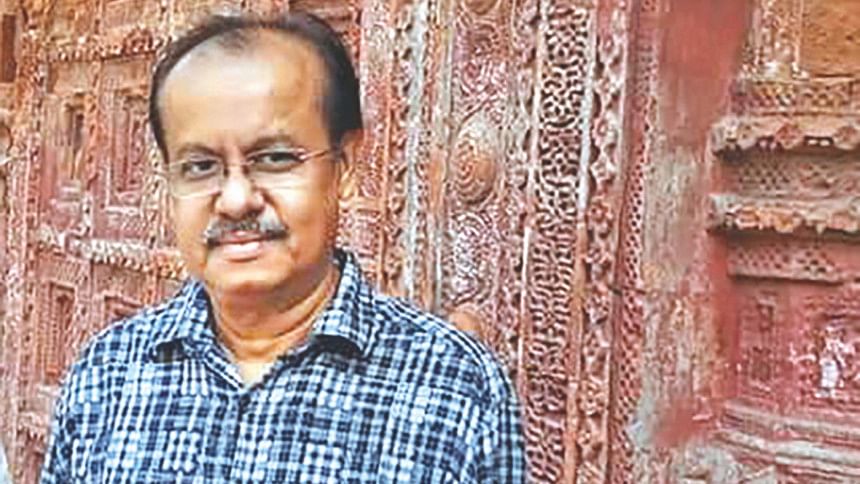In memory of Mohammad Badrul Ahsan

Mohammad Badrul Ahsan, the inimitable author of the sparkling "Cross Talk" column in The Daily Star and Editor of the now defunct weekly "First News" is no more, his life cut short abruptly at the age of 60, when his full potential as a writer was yet to blossom. Such is the inscrutable dispensation of the mysterious and capricious Creator. Nevertheless, Badrul will live forever as a renowned and powerful writer.
I came to know Badrul—26 years my junior in age but infinitely senior to me in writing talents and accomplishments—through his column, which was a rare treat and a must read. I was frankly mesmerised by the profundity of his wisdom, his sharpness of intellect and the exalted quality of the writings displayed in his column. His command over the English language was superb and astounding. The style of his writing was intoxicating. When I told him that his essays could very well be placed in the ranks of the greatest essayists such as William Hazlitt, G K Chesterton, Francis Bacon, Charles Lamb and Samuel Johnson, he smiled and said he felt flattered by the abundance of my love for him.
Soon our acquaintance expanded and morphed into an intimate and deep friendship, in spite of the age difference between us. He was not an infrequent visitor to my home in Dhanmondi, invariably accompanied by our common Mamu, M A Noor, a supreme court lawyer by profession, and a colourful character with an indefatigable zest for life. We enjoyed small talk and discussed politics, poetry and passion. Badrul was fond of my food and culinary skills, acquired of necessity due to the perpetual illness of my wife. He of course never failed to reciprocate my hospitality, and took us out for lavish lunches and dinners to Hotel Sonargaon and Intercontinental.
Badrul studied Economics for six years in Georgetown University, Washington, took up a lucrative job in Standard Chartered Bank in Dubai and later returned home to pursue his passion for writing. He wrote about everything on earth. He was deeply suspicious of the so-called development bubble, and the related growth index and progress. His basic assumption was that Bangladesh lost its innocence and sense of fundamental values the moment it leaped onto the development path, spiraling into a vicious circle and becoming part of a superstructure that is a promiscuous mix of disconnect and delinquency, greed, graft and chaos, aggrandisement, expropriation and forfeiture, the promotion of oligarchy, exploitation and inequality, stalemate and stagnation, violence and hatred and a denial and distortion of democracy and human rights. Development lapsed into decadence, a victim of its own success.
He was a rebel and an iconoclast, ridiculing and shattering the images of so-called important individuals and institutions who have power and authority in our society. His columns, published in three volumes by UPL, are an eloquent testimony of his abiding passion for democratic values, rule of laws, human rights, principles of truth, and justice and fair play in our society, and a hatred of abuse of power and lack of accountability.
Badrul was a confirmed bachelor, remarkably without any vices. He lived a solitary life and died quietly. He was an extremely sophisticated and private person. While I was not privy to his private life, there is no doubting that beneath his exterior of calm equanimity, there was an unmistakable streak of sadness and the deep tragedy of frustrated love in his life, as reflected in comments such as "heartbreaks leave behind bruised souls, forever licking the wounds", and "Love is the first casualty of almost all the marriages" in his essays.
Badrul was in a hurry to finish his 300 page English novel by Penguin Publishers. I am absolutely certain when the book is published posthumously, it will make him the first Bangladeshi English novel writer in the ranks of Arundhati Roy, Vikram Seth, Amitav Ghosh, R K Narayan and Naipaul and others.
With the passing away of Badrul, eternity has lost a speck of dust, the world a headcount, and the country a worthy son. But I have lost a friend who was very dear to me.
Abdul Hannan is a columnist and former diplomat.

 For all latest news, follow The Daily Star's Google News channel.
For all latest news, follow The Daily Star's Google News channel. 



Comments